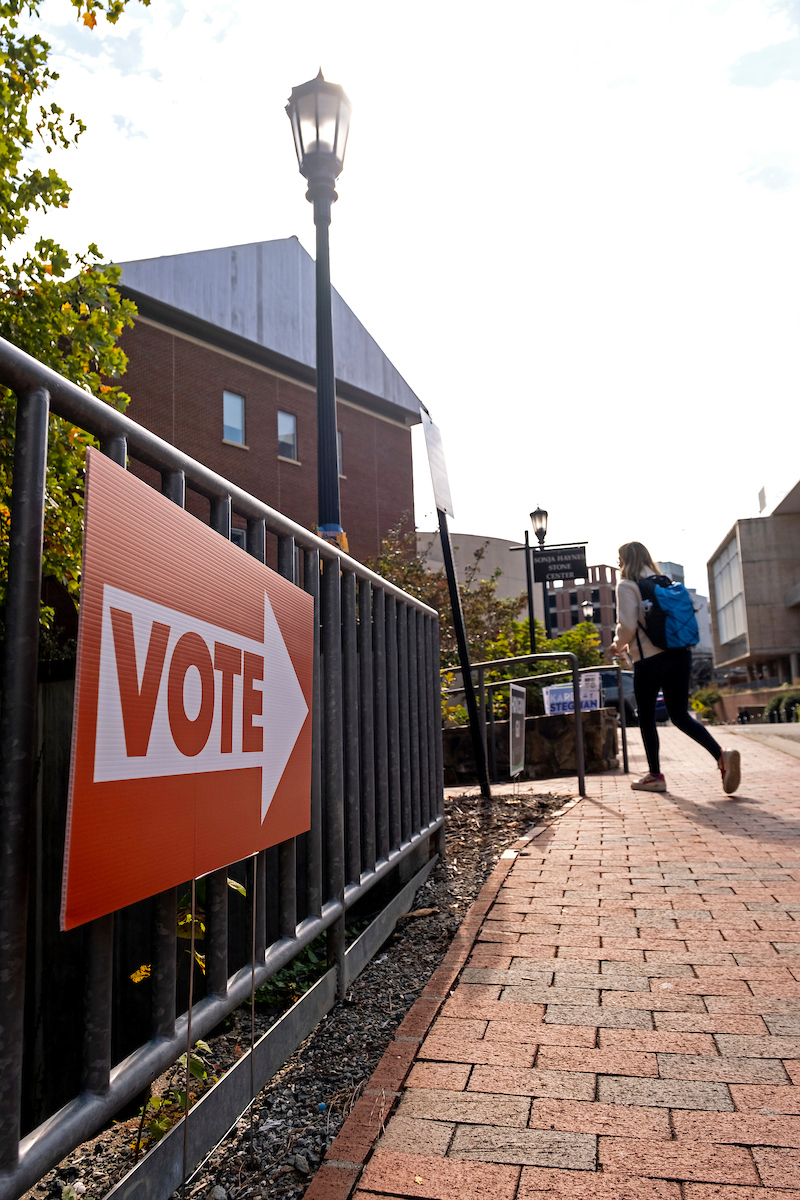Carolina receives national recognition as a voter-friendly campus
UNC-Chapel Hill has earned national recognition as a “voter-friendly campus” by the Voter Friendly Campus initiative. The University also received a Highly Established Action Plan Seal by the ALL IN Campus Democracy Challenge for its action plan to increase nonpartisan democratic engagement among students.
Carolina’s Promote Democracy Initiative, an effort to engage the University as diverse citizens working across differences in society to explore how humanity’s potential can be realized through democracy, is fueled by the University’s strategic plan, Carolina Next.
“Our main goals have been to simplify the registration and voting process for students and to provide resources to marginalized communities,” said Gared Wong, a civic engagement coordinator with Student Life and Leadership. Student Life and Leadership aims to increase student democratic participation among the Tar Heel community.
The Voter Friendly Campus aims to create more measurable and manageable guidelines for institutions to follow to create more voter-friendly campuses. The program helps institutions develop action plans that coordinate all members of an institutional community in civic and electoral engagement. It is founded by the Campus Vote Project and NASPA LEAD Initiative.
ALL IN is a group that aims to empower colleges and universities to achieve excellence in nonpartisan student democratic participation. It awards the Highly Established Action Plan Seal of recognition for institutions with strong plans to increase democratic engagement. Carolina was one of the 91 institutions awarded this seal for 2024.
Efforts under the Promote Democracy initiative are spearheaded in part by Natasha Young, the leadership development program coordinator of Student Life and Leadership. Young developed an action plan to increase student voter engagement that considers what student engagement may look like, the landscapes of how students may have previously been involved in voting, and the goals that the campus has.
These goals include both longer – and shorter – term objectives that work within the civic engagement working group and the Promote Democracy coalition to decide what is feasible when it comes to outreach with various campus offices and departments. The longer-term goal of the initiative is to reach 90% voter turnout at UNC-Chapel Hill.
“There’s this institutional alignment where we as staff or faculty are doing our best to make sure that students can engage in civic engagement and democracy as best they can,” Young said. “I’ve tried to be very intentional that the student perspective is well-incorporated in addition to that of faculty and staff,” she said.
In 2020, 90% of Carolina students were registered to vote. Eighty-two percent of eligible student voters turned out to vote that year, a large portion of whom voted early or by mail due to the pandemic. This turnout was well above the 2020 average voting rate for all institutions of 66% and up 25% from the 2016 student voting rate.
“Based on our numbers and our data, students at Carolina are engaged. They care about what happens on campus and off campus as it relates to voting, politics, or anything that might impact their experience as a student,” she said.
Despite these statistics, there is still more to be done as younger voters search for representations of themselves and their values in political candidates, Young said. She said younger students are becoming more involved than ever because of the dissonance between their own values and those represented in a two-candidate system.
“Although we as students have made an impact, I think there are still a lot of barriers that prevent or discourage younger voters from voting,” said Wong. He said that barriers include the complexity of registration forms, address changes, language barriers, and voter fatigue. “If students ever need help with an action plan, a registration form to be mailed or stamped, or are unsure about the registration and electoral process, please reach out.”
—Payton Wilkins

